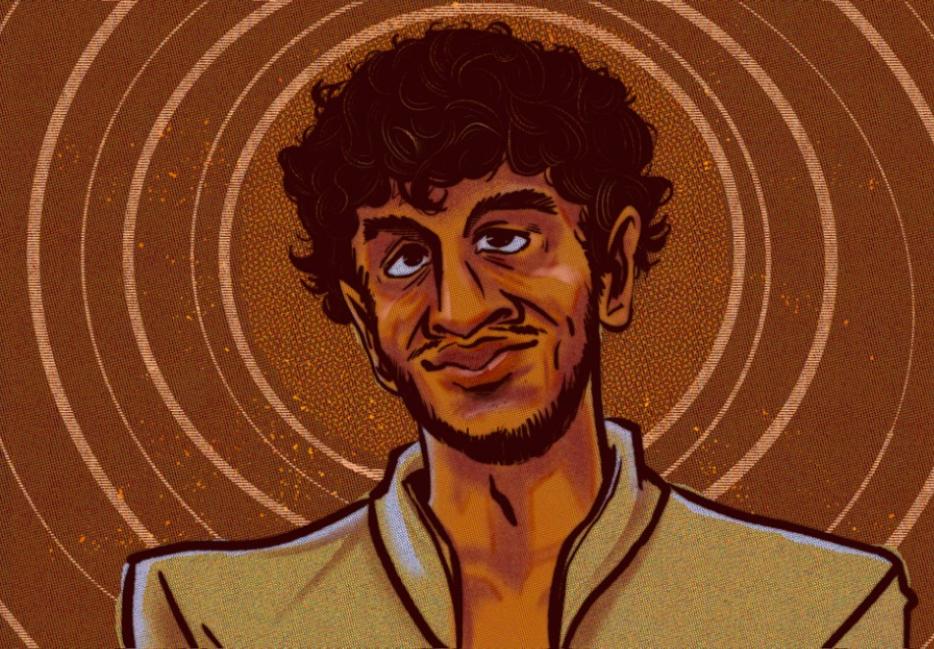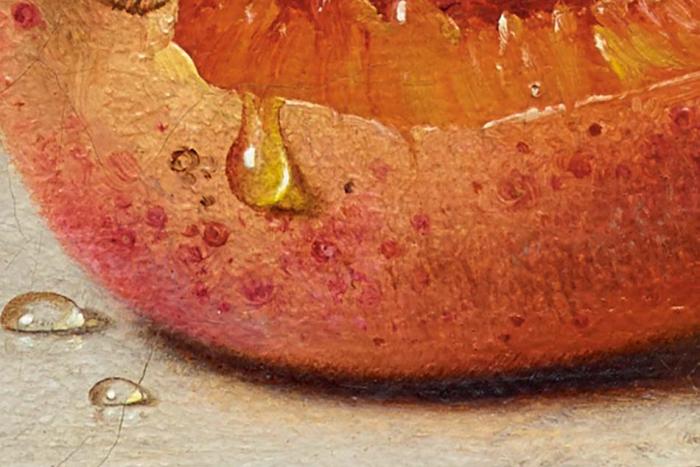Welcome to Wayward Watching, a column on the seen and unseen in film.
The scariest moment I’ve seen in a film occurs sometime during the first half of Casino. Sam (played by Robert De Niro) runs a sprawling Mafia-backed resort in Las Vegas and midway through his rounds of the chip tables downstairs one evening, he spots a couple of men scheming to read a dealer’s cards. He secretly pokes the tougher-looking man with a cattle prod and tells his enforcers to whisk him off to another room. Later he asks the electrocuted man if he can shuffle cards with his left hand. The man shakes his head. “So you’re a righty?” Sam checks with him again. Then a hammer resolutely falls on the man’s right hand.
For a torture sequence, the scene is pretty basic. It doesn’t measure up to the hijinks of Martin Scorsese’s own gruesome hits: those slow-motion punches testing the elasticity of De Niro’s cheeks in Raging Bull, the immoral elevator shootout in The Departed, even a later moment from Casino when Sam’s friend, Nicky (Joe Pesci), puts a fellow gangster’s head in a vise. But Sam’s behaviour is unnerving because so far we’ve just seen him try to run the casino with the pluck of a persevering immigrant. At one point, he notices that there aren’t enough blueberries in a guest’s order of blueberry muffins and complains, “You have to do everything here yourself.” If anything, you expect Nicky to casually maul someone’s right hand. Sam has been hitherto portrayed as a monomaniac only when it comes to gambling, both as a game and a business. The idea that obsession begets violence was never so fluently put.
Moments into Killers of the Flower Moon, Scorsese makes his point again with a simple editing tweak. This time De Niro plays Bill Hale, a cattle ranch owner in 1920s Oklahoma, a greasy old white patriarch who has christened himself “King of the Osage Hills.” We first see him through the eyes of his nephew, Ernest Burkhart (Leonardo DiCaprio), who has returned home to Fairfax after a stint in the war. Over a round of welcome drinks, Hale tells Burkhart that the Osage folks in town might be prosperous, courtesy of the oil being drilled out of their land by white men, but they won’t remain wealthy for long. “They’re a sick people,” Hale says. “They are kindly people, big-hearted people, but they’re sickly.” The scene transitions into a showreel montage of sprightly-looking Osage men and women, all of them inexplicably dead. In the background, a female voice mentions their names and the common thread linking these losses: the fact that these deaths are yet to be investigated. Later in the film, we will learn that multiple members of the Osage community have been systematically targeted over the years. But the viewer has been apprised in the first ten minutes that these deaths are linked to oil and Hale.
To me, Scorsese has always been the apotheosis of a certain kind of American filmmaking: crisp effects, clinical execution, scene after scene pulsing with the inevitability of violence. The meatiest parts in these stories are all male; much of the comedy is derived from the anxious blustering before a brawl or a shootout. And yet Scorsese never seems as comfortable sustaining the pressure of a plot as in those vérité-style explanatory interludes when the camera maps out the territory of the film. In Killers of the Flower Moon, he doesn’t mind that Hale’s prefatory remarks about the Osage community foreshadow his involvement in the murders too soon. What seems more intricately set up is the showreel montage of the victims, or that one spectacular shot of oil gushing out of an empty field, to the extent that you think the only way Scorsese could have justified the indulgence of these moments was by making a three-hour-long film. In Casino, the camera lingers around the counting room of the hotel for a minute too long, not just to demonstrate how mob bosses are skimming off the cash earnings, or the fact that even Sam isn’t allowed inside, but also because sometimes it’s just exhilarating to watch men at work.
In Killers of the Flower Moon, Scorsese’s technical dexterity appears to have met his match in two ways. His best films, for one, were never polyphonic. In Casino, Nicky’s voiceover does occasionally push the story along faster, but his version isn’t sufficiently at loggerheads with Sam’s perspective. And who can forget Lorraine Bracco as Karen Hill in Goodfellas, piping in as the gangster’s overzealous wife? The story of the Osage murders, however, is too unwieldy to be whittled down to a central narrative intelligence. Scorsese’s decision to refract the source material—David Grann’s 2017 book on the killings—through Ernest’s eyes strikes me as beside the point. And that isn’t just because Ernest is white.
When he first arrives in town, Ernest is escorted to his uncle’s ranch by Henry, an Osage friend of Bill Hale. Ernest is impressed by the scenery en route: the prairie expanse, the floating clouds in the distance. “Whose land is this?” he asks Henry. “My land, my land,” comes the answer. The camera hovers meaningfully up in the air to suggest that Henry’s response is meant to be an imaginative challenge. But alas, the film rarely takes up the gauntlet. In later scenes, Henry reappears as a bit of a fink, driving around town with a bottle of moonshine in one hand, beating up a man who he believes is sleeping with his wife, racking up debts with white men. Hale tells Ernest that he has taken out an insurance policy in Henry’s name which means that he can’t die—or be killed—until the end of the year: “I might even have a shot at his headrights.” Scorsese’s sympathies are, of course, with Henry, and yet the chronicle of his final months does feel nauseous: the transformation of a tragedy into a spectacle is too neat. Henry’s complexity as a character is overwhelmed by the focus on the conspiracy of his murder. The contradictions that enliven a small part—consider, for instance, the self-assurance of Henry’s “my land, my land” remark and then his habit of borrowing money from Hale—are ignored. I thought about Spider in Goodfellas, played by a twentysomething Michael Imperioli, another minor character in a Scorsese film. Spider is shot dead halfway through the movie, much like Henry, but at least he gets to stand up to his killer first.
And then there is Lily Gladstone as Mollie, an Osage woman who ends up marrying Ernest in Killers of the Flower Moon. Gladstone is one of those actors who can conjure up a whole moral and physical atmosphere by just being present in a scene. The first time they have dinner at her place, Mollie asks Ernest to sit quietly next to her during a storm: “Just be still.” Ernest wonders aloud how a woman like her, so rich and so beautiful, doesn’t have a husband yet. Mollie just stares at him in response, one of those amused glances that convey both attention and awareness. In those seconds you can’t help but feel Gladstone deserved a different movie.
What would such a movie look like? It would be less chatty for one, with fewer scenes of Hale scheming with Ernest to murder Mollie’s sisters one at a time, or persuading him to tamper with Mollie’s insulin to “take care” of her. You could begin with a moment that is, to me, the punctum of the narrative: a frail Mollie walking down a smoky train platform in Fairfax, groups of white men peering ominously in the haze. A voice inside her head goes off: “I close my heart and keep what is good there, but hate comes. And they say I ought to kill these white men who killed my family.” Scorsese does begin the film with a scene at the train station, albeit from Ernest’s point of view, so he can depict the murders as they unfolded. But some stories don’t reveal themselves sequentially in time.
Long after you’ve forgotten Henry Hill’s resourceful heists in Goodfellas, you remember Karen hanging out with the fellow mob wives, the horror with which she recoils from all the “bad skin” and makeup. That the women in Scorsese’s films are usually more fascinating than the men is perhaps to his credit, but I’ve always suspected that he shies away from telling their stories because he can’t tidily trim their lives into three acts. Think of Ginger in Casino, for instance. There is a kinetic quality to her early scenes in the establishment—the sangfroid with which she moves from floor to floor, slipping dollar bills to everyone from the valet to the card dealer—that fades all too quickly after her wedding to Sam. After all, this is the same woman who asked Sam for cash to buy a drink midway through a date and then refused to return the change. Despite the sumptuous wardrobe and jewels, you do wonder why she didn’t run away with her hustler ex-boyfriend sooner. As for the affair with Nicky, it seems shoddily set up from the start. You can see why Ginger might give in, having reached a point in her marriage where she just wants to hurt Sam, but Nicky’s pursuit, given that he is always complaining about walking on thin ice with the gang bosses, doesn’t make much sense.
In a 1952 essay on George Orwell, the American literary critic Lionel Trilling wrote that Orwell is impressive precisely because of his modest gifts, his “simple ability to look at things in a downright, undeceived way”:
He seems to be serving not some dashing daimon but the plain, solid Gods of the Copybook Maxims. He is not a genius—what a relief! What an encouragement. For he communicates to us the sense that what he has done any one of us could do.
Scorsese’s appeal, too, lies in his not being a genius, the peaks that his movies scale so effortlessly despite their inadequacies. Time and again you can discern a democratic intelligence at work in his art. Who else can get a tracking shot, or those intermittent documentary-like splices, to exude the feeling that the world is all but transparent if you’re willing to look? His women dazzle in short bursts; he might lack the acumen to follow their stories unsentimentally, but he isn’t the first male filmmaker to falter in that respect. With the men he can be merciless, attuned to the half-lies they compulsively tell themselves, the pressure points in their psyches. Henry Hill’s abiding tragedy is that he never grasps all the ways in which he is a bit player in the wider scheme—which is also, to be sure, Nicky’s and Sam’s undoing in Casino. There is a moment in Killers of the Flower Moon when Ernest tries to assert his authority over Mollie, demanding that he be told a secret. “I’m a man,” he says, “I need to know these things.” Mollie stays silent and gives him a defiant look. She almost doesn’t believe him.






